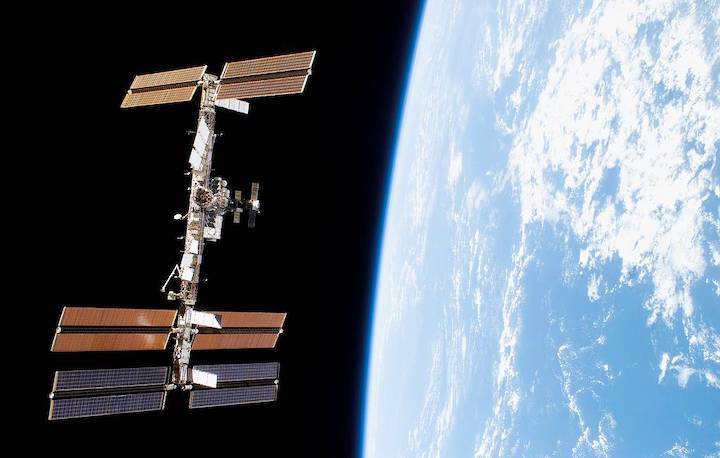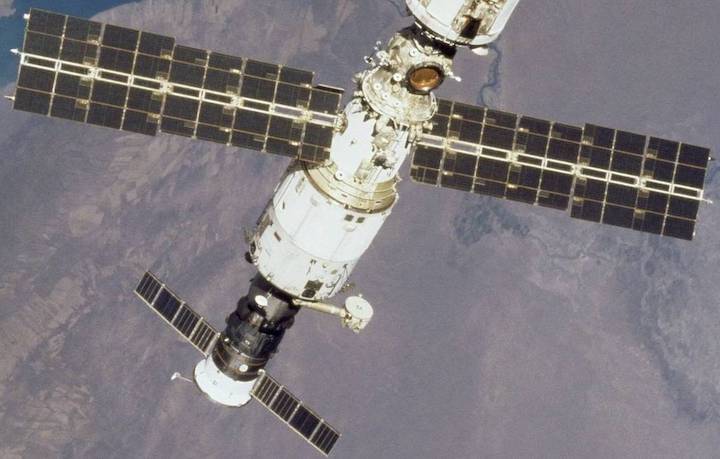15.11.2021

Space debris missed the International Space Station but may approach it again in about one and a half hours, a flight controller in Houston said.
Air pressure onboard was fine, the controller said during a livestream on NASA’s website with the ISS crew that went over to the docked space ships to take refuge from the potential incident. Russia’s flight control center allowed the crew onboard the Soyuz ship, Anton Shkaplerov, Pyotr Dubrov and US astronaut Mark Vande Hei to return to the ISS while the flight controller in Houston said a discussion was underway for the return of those who were onboard the Crew Dragon, US astronauts Raja Chari, Thomas Marshburn, Kayla Barron and Germany’s Matthias Maurer.
The mission control center in Houston said the approach of space junk will take place from 08:38 to 08:44 (from 11:38 to 11:44 Moscow time -TASS).
The ISS crew is required to take refuge at a spaceship if the ISS nears a potentially dangerous object, Roscosmos told TASS earlier. Russian cosmonauts Anton Shkaplerov and Pyotr Dubrov and US astronaut Mark Vande Hei went over to the Soyuz MS-19, while US astronauts Raja Chari, Thomas Marshburn, Kayla Barron and Germany’s Matthias Maurer went onboard Crew Dragon.
Quelle: TASS
+++
ISS to get close to space junk soon, Roscosmos says
The International Space Station will come close to space debris soon, Roscosmos told TASS on Monday, citing a report from NASA’s Mission Control Center in Houston.
"According to the mission control center in Houston, the station will soon enter a corridor potentially approaching a space debris object,’’ according to Roscosmos.
Safety guidelines call for the crew to stay inside the station if the ISS nears a potentially dangerous object, the state corporation said.
A fragment of China’s Fengyun-1C satellite got close to the ISS about 4 am Moscow time on November 12, Roscosmos told TASS last week. To avoid a collision, the station's orbit was increased by about 1.2 kilometers. Later, an orbit correction, which had been planned for November 16, was cancelled.
Quelle: TASS
+++
Russian cosmonaut traces possible air leak spot in orbital outpost’s Zvezda module

Roscosmos cosmonaut Pyotr Dubrov detected a possible air leak spot in the intermediate chamber of the Zvezda module aboard the International Space Station (ISS), the cosmonaut told the Flight Control Center during a communications session on Monday.
The Russian cosmonaut said he had traced the possible spot of the continued air leak while inspecting the Zvezda module’s intermediate chamber at the weekend.
"I began preparing a perimeter for laying a cord today. I detected a suspicious spot and started to examine it," the cosmonaut said, replying to a question about the work in the intermediate compartment in a live broadcast by NASA.
As the Russian cosmonaut said, he made a photo of the detected spot using a microscope with magnifying lens. He did not make video footage of the works, he said.
In March, Roscosmos cosmonauts Sergey Ryzhikov and Sergey Kud-Sverchkov carried out repair and recovery work in the Russian Zvezda module where a crack and some potential air leaks had been detected. The Russian crewmembers conducted all their operations under the direction of the ISS Russian Segment’s main operational control group and engineers of the Energia Space Rocket Corporation. All of the Russian crew’s operations were agreed with NASA specialists on an instruction from Roscosmos Chief Dmitry Rogozin.
In mid-April, Roscosmos cosmonaut Ivan Vagner told reporters that the air leak aboard the orbital outpost had dropped three-fold after the cracks were sealed.
Quelle: TASS
+++
Experiments may start at ISS Nauka module in near future, cosmonaut says
Scientific experiments in the Nauka module, which was docked to the International Space Station in summer, may start in the near future, cosmonaut Anton Shkaplerov told TASS in an interview from onboard the station.
Equipment is still being installed in the module, and "in the near future, when at least some of it is installed, we will start the first experiments in the Nauka module," he said.
Also, the module’s system of recycling urine into water could soon start working, "and that would give the station some additional water," the cosmonaut said.
The Nauka multi-purpose module was launched from the Baikonur Cosmodrome on July 21 and docked with the ISS on July 29. It’s designed to implement the Russian program of applied research and experiments and provides cosmonauts with additional space for workplaces, cargo storage, and water and oxygen reclamation equipment. The Nauka module also provides Russian cosmonauts with a cabin for a third crew member, a second toilet and the European Robotic Arm (ERA) that will help to perform some operations without spacewalks.
Quelle: TASS
